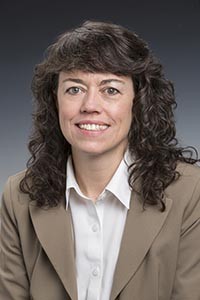
Donna Schantz is the executive director of the Prince William Sound Regional Citizens’ Advisory Council.
March 24, 2017, marked the 28th anniversary of the Exxon Valdez oil spill. Each anniversary is a time for reflection on how far we have come, as well as how much there is left to do. It is also a time to recognize the efforts of those who used the lessons of the Exxon Valdez to advocate for safeguards to ensure nothing like it ever happens again. Thanks to the foresight, vigilance, and tireless efforts of elected officials, government regulators, industry, and citizens, the oil spill prevention and response system now in place in Prince William Sound is an example to the rest of the world. A big part of the success in Prince William Sound is that all these partners work together. We all share one goal: to promote the safe transportation of oil. While every partner has played a vital role in the success in Prince William Sound, special recognition is warranted to honor past and current technical committee and board members of the Prince William Sound Regional Citizens’ Advisory Council. Our volunteers have put in countless unpaid hours dedicated to the mission of our organization.
Congress found that complacency on the part of industry and government personnel responsible for monitoring the operation of the Valdez Marine Terminal and associated oil tanker traffic in Prince William Sound was a major contributing factor to the Exxon Valdez oil spill. To combat this complacency, Congress established two regional citizens’ advisory councils, ours in Prince William Sound and another in Cook Inlet, to involve citizens in an environmental oversight and monitoring. Neither council could satisfy the provisions under this federal mandate without dedicated volunteers from throughout their respective regions.
Successful prevention can lead back to complacency for some. We have gone twenty-eight years without a major oil spill in Prince William Sound. Having gone so long without a major spill, some might think it is acceptable to cut back on efforts or relax oversight.
The first board and committee members, who joined the Council in 1990, witnessed firsthand the devastating effects of the oil spill. Some of them are still volunteering for the Council more than a quarter of a century later. These experiences played a big part in the passion and drive of all parties to put systems in place designed to prevent another accident, and to make sure there are trained personnel and equipment available to respond should prevention measures fail.
The idea for regional citizens’ advisory councils was that citizens who have the most to lose from oil pollution must have a voice in the decisions that can put their livelihoods and communities at risk. The Council serves as that voice for Prince William Sound through our board, committee volunteers, and staff. The work of the Council since our formation has helped bring about some changes and advancements that I am sure would not have happened had we not been in existence. I would like to thank all of the citizen volunteers that have given so much of their time to support our work, both past and present, as well as all of our partners and industry and regulator colleagues. Everyone involved should be proud of what has been accomplished, but we also should never become so satisfied with the current services or processes that we become complacent. As far as we have come since 1989, there is always room for improvement.
Partnerships are a cornerstone of our fight against complacency. If we all work together, including citizens, regulators, industry, and other stakeholders, we can leverage our expertise and resources to maintain and improve the system that we’ve worked so hard to put in place. Recently, the Council has been expanding collaboration with the Cook Inlet Regional Citizens Advisory Council on issues of importance to both organizations. While our regions and some of our issues may differ, our efforts are aligned and our voices are stronger when we are working together. We look forward to fostering a continued relationship with the Cook Inlet RCAC in the future.
Being a citizens’ council is more than just a title, it is the meaning behind our mission. It is only when citizens are involved in the process, working together with industry and government, that we can strive for best available technology and practices and improved safeguards designed to prepare for and prevent future oil spills.